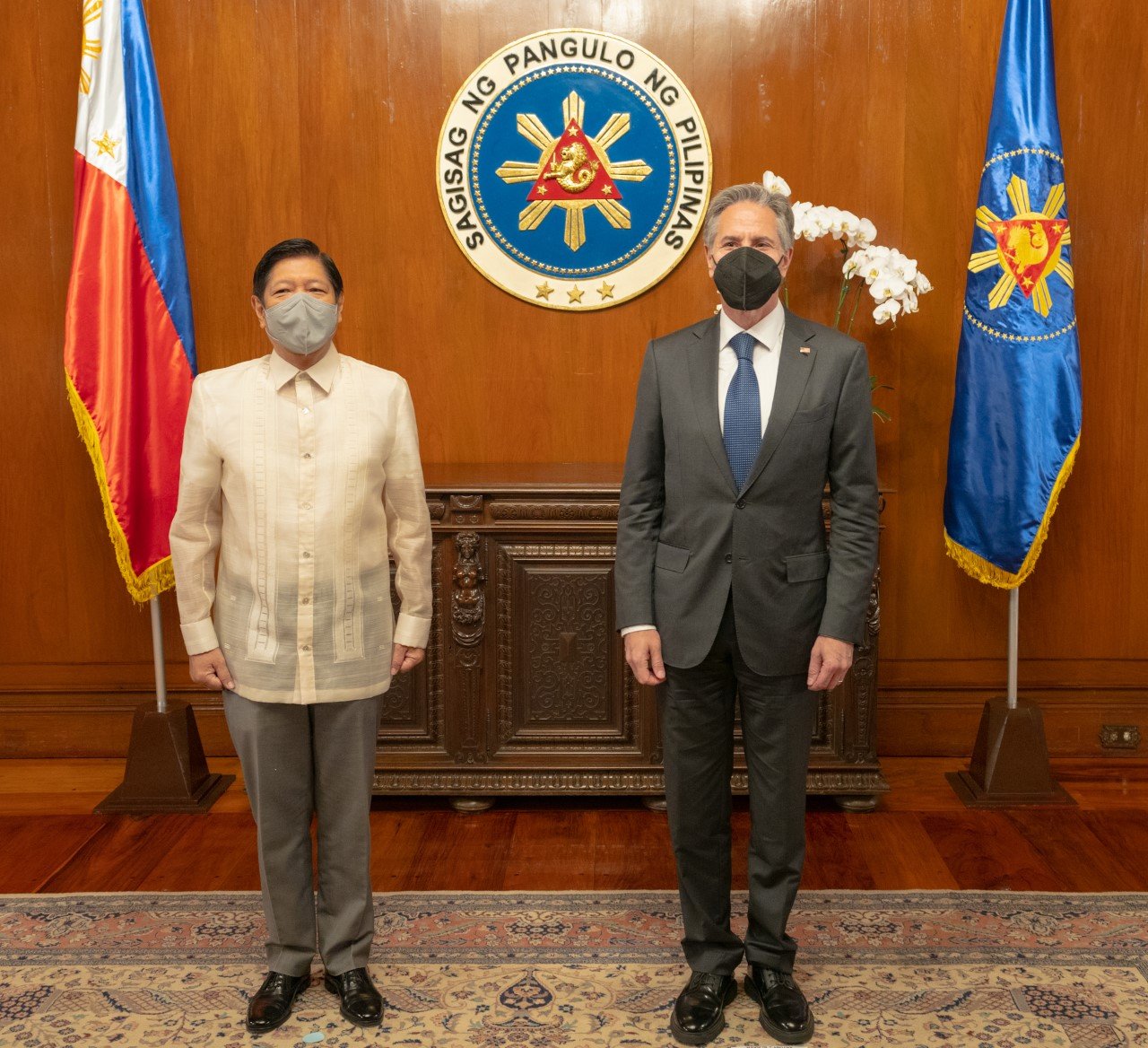On August 6, the US Secretary of State Antony Blinken reassured the Philippines that the US would defend them if they were attacked in the South China Sea.
This can be viewed as the United States’ latest attempt to alleviate concerns regarding the depth of its commitment to a treaty on mutual defense. The significant development occurred during a meeting in Manila between US Secretary of State Antony Blinken and newly elected President Ferdinand Marcos Jr.
Blinken declared that a defense agreement with the Philippines that has been in place for 70 years is “ironclad.”
However, the meeting was dominated by the issue of escalating US-China tensions related to Speaker of the US House of Representatives Nancy Pelosi’s visit to Taiwan.
Maraming Salamat, Philippines! I thoroughly enjoyed my visit and am grateful for our enduring alliance, partnership, and friendship that advances our shared prosperity, security, and values in the #IndoPacific region. pic.twitter.com/T1NafAZyH2
— Secretary Antony Blinken (@SecBlinken) August 6, 2022
Blinken stated at a press conference that “an armed attack on Philippine armed forces, public vessels, and aircraft will invoke US mutual defense commitments under that treaty.”
He added that “the Philippines is an irreplaceable friend, partner, and ally to the United States.”
Since Marcos came into office on June 30, Blinken has been the highest-ranking US official to travel to the Philippines. In his opening remarks, Marcos attempted to downplay Taiwan’s diplomatic crisis. He expressed his opinion that Pelosi’s visit “did not raise the intensity” of an already tense situation.
“We have been at that level for a good while, but we have sort of got used to the idea,” Marcos said. The Philippines serves as a focal point for the US and China’s geopolitical conflict, and Marcos attempts to walk a fine line in maintaining relations between the two superpowers.

But, relations between China and the Philippines have deteriorated since 2009, when China attempted to establish its claims in the South China Sea. Beijing has also stopped the Philippines from developing oil and gas projects or fishing in the contested waters.
In 2016, the international court ruled that China’s so-called “nine-dash line,” which it used to claim nearly the entire South China Sea, was invalid.
The ruling has been disregarded by Beijing, who instead constructed artificial islands and sent fleets of fishing boats, coast guards, and naval forces into the territorial waters that the Philippines also claimed.
Thus, the new president is consequently under pressure at home to oppose China in the South China Sea without upsetting its leadership.
Defense Treaty
Meanwhile, Washington and Manila have been at odds over the Visiting Forces Agreement for some time, making it easier for American troops to enter the Philippines for the yearly military exercises.
Rodrigo Duterte, the former president of the Philippines, declared in February 2021 that he was ending the agreement after the US Congress moved to place sanctions on senior Philippine officials suspected of violating human rights.
Later, Duterte postponed the decision to formally revoke the 1998 pact, using it as leverage against both Beijing and Washington.
Compared to his predecessor, Marcos Jr. avoided criticizing Washington in his important speeches, whether as a presidential candidate or after becoming the new occupant of the Malacañang Palace.
The United States and the Republic of the Philippines signed the Mutual Defense Treaty in 1951, which states that both nations are committed to “defend themselves against external armed attack so that no potential aggressor could be under the illusion that either of them stands alone in the Pacific Area.”
According to Article 4 of the treaty, each nation acknowledges that an armed attack in the Pacific region on either party “would be dangerous to its peace and safety and declares that it would act to meet the common dangers in accordance with its constitutional processes.”
Article 5 explains the definition of attack and its purpose. It covers any armed attack on either party’s metropolitan territory, island territories under its control in the Pacific, or on its armed forces, commercial ships, or aircraft.

The Biden administration wanted to reassure Manila that Washington would treat any threat to the Philippines as an attack on American soil. However, security treaties’ ambiguity raises some questions.
The treaties state that the US “would act to meet the common dangers,” but they mention the deployment of American forces to defend the partners’ territories.
Enrique Manalo, the foreign minister of the Philippines, said on August 6 that President Joe Biden had extended an invitation to Marcos to visit Washington and that the two parties were negotiating a suitable date.
President Ferdinand Marcos Jr. is the son of the late strongman who Washington assisted in escaping the Philippines during a “people power” uprising that ended his two-decade rule in 1986 and exiled to Hawaii.
Marcos has not visited the United States in over a decade, owing to a contempt court order for his unwillingness to cooperate with a Hawaii court.
In 1995, the court mandated that the Marcos family repay $2 billion of missing state funds to people the government had wronged during his father’s rule. However, the heads of state have diplomatic immunity.
Nevertheless, the assurance from the US contributes significantly to the region’s stability, particularly when the tensions over the Taiwan issue are escalating quickly.
- Contact the author at ashishmichel@gmail.com
- Follow EurAsian Times on Google News




